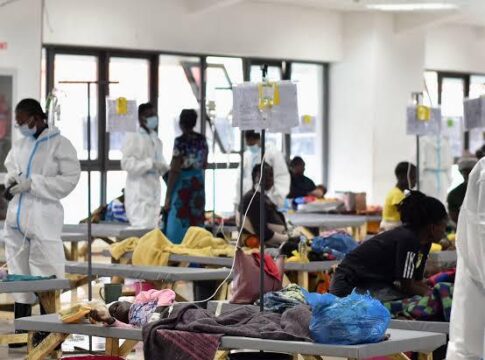Ghana is battling its worst cholera outbreak in years, with over 6,100 cases and 51 deaths reported as of February 16. The waterborne disease, which first appeared in the Greater Accra Region, has now spread to Central, Western, Ashanti, and Eastern regions, putting immense pressure on the country’s healthcare system.
Hospitals are overwhelmed, with medical staff working round the clock to manage the surge in cases. “Last week alone, I handled more than 20 cases myself because my officers were busy managing cholera patients in the wards,” said Dr. Douglas Amponsah, Medical Superintendent of Winneba Government Hospital.
While the outbreak remains critical, intensified response measures are beginning to show results. The Ministry of Health has launched a large-scale vaccination campaign, administering nearly 854,000 doses of the oral cholera vaccine in high-risk areas. Public health teams are also conducting environmental assessments, improving sanitation, and educating communities about preventive measures.
READ MORE: Dangote Group to Invest $400M in Ethiopia Cement Expansion Amid Market Growth
“Despite the worrying situation in the Central region, new cholera cases are decreasing. Hard-hit districts like Agona West and Effutu are now seeing a decline,” said Health Minister Kwabena Mintah Akandoh.
The outbreak is linked to poor sanitation and contaminated water sources, exacerbated by the region’s infrastructure challenges. In response, local leaders are pushing for increased public awareness campaigns. “We will roll out jingles on local media to reinforce the message that hygiene is key to stopping cholera,” said Nenyin Ghartey II, Paramount Chief of the Effutu traditional area.
Experts warn that while case numbers are dropping, sustained efforts are crucial to preventing future outbreaks. Without long-term investments in water and sanitation, Ghana risks another deadly resurgence.




